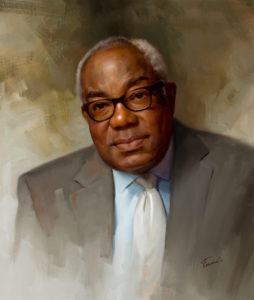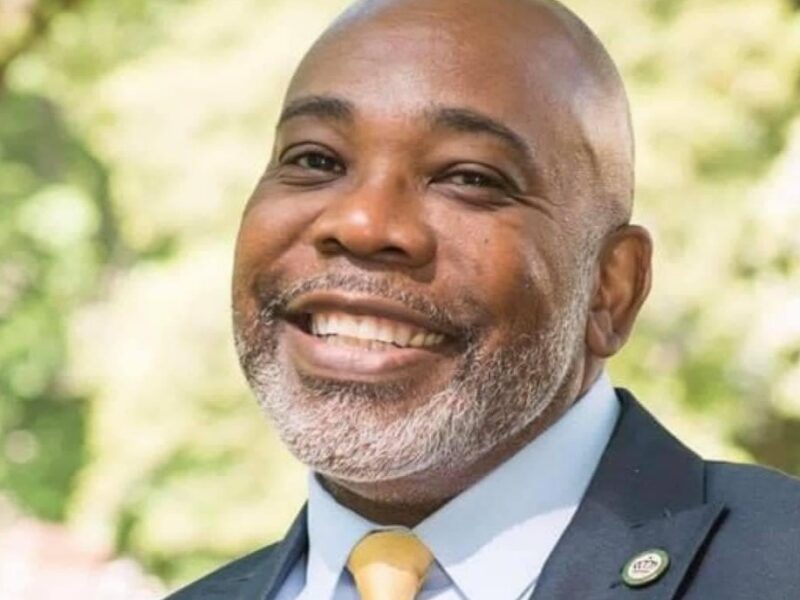
Pursuing Justice for All
Civil Rights Leader Epitomized Black Philanthropy
The life of Julius Chambers had many facets. He served his community and his country as a lawyer, civil rights leader, educator, university chancellor, author, and board director. Yet the thread that united and connected all these roles was an unwavering determination to fight for those less fortunate. As an eminent African-American civil rights lawyer, his work ultimately affected all Americans.
Besides his many professional pursuits, Chambers had a deep interest in philanthropy. “My profession and my philanthropy are linked through my involvement in civil rights,” said Chambers. “Historically, I’ve been interested in making sure minorities would have equal opportunities in education, housing, healthcare and employment,” Chambers said. “I’d gone through those issues and knew others would.”
Chambers endured racial injustice first-hand. As a child, he attended segregated public schools that were poorly supported. An incident in which his father was unable to collect a bill from a white man – or sue for nonpayment – convinced Chambers that law school was his path toward aiding others who had suffered similar discriminatory treatment.
Education was pivotal to his mission, for he learned from several teachers the importance of believing in himself, his abilities and his dreams despite the barriers of racial injustice. That lesson propelled him to break new ground in his quest to eliminate discrimination in the worlds of education and employment, as well as in society at large.

Chambers was chosen editor-in-chief of the Law Review at University of North Carolina at Chapel Hill, thus becoming the first African-American to hold the title at any historically white law school in the South. He was the first legal intern at the NAACP Legal Defense and Education Fund (LDF). He established his own law practice in Charlotte, which eventually became the first integrated law firm in North Carolina. Chambers helped to litigate landmark cases regarding school busing (Swann v. Charlotte-Mecklenburg Board of Education) and employment discrimination (Griggs v. Duke Power Company and Albemarle Paper Co. v. Moody) before the United States Supreme Court that were instrumental in shaping national civil rights law. Locally, the ruling in the school busing case prompted white and black citizens of Charlotte and Mecklenburg County to unite to make desegregation work in the school system.
As director/counsel of LDF, he positioned the organization to serve as the first line of defense against the political attack on emerging civil rights legislation and affirmative action programs. In addition, under Chambers’ leadership as chancellor of his alma mater, North Carolina Central University, the university launched a capital campaign and established its first ten endowed chairs.
The recipient of numerous honorary law degrees, Chambers also is a past member of the board of trustees of NCCU and Duke University, as well as the board of governors of UNC Chapel Hill. He served on the board of directors of the Children’s Defense Fund and LDF, Durham Communities in Schools, Leadership North Carolina, North Carolina Partnership for Children, and the Golden LEAF Foundation.
Chambers was a recipient of the American Bar Association’s Thurgood Marshall award for furthering civil rights and liberties and human rights, the Distinguished Alumni award from UNC Chapel Hill, and the Courageous Advocacy award from the American College of Trial Lawyers.
His experience, influence and persuasive powers made Chambers a formidable fundraiser, a talent he employed on behalf of causes dear to his heart. His formula for success in persuading others to join in support of important causes was: “Have fiscal integrity and a public relations program to tell people what you’re doing and how. People are really very committed and interested in investing to help others, so show the world what you’re trying to promote for people.” But more important than all that, he said, is to “First have a mission.”
If the life of Julius Chambers is any indication, that’s good advice indeed.




